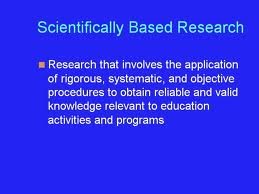Research and Analysis
OVERVIEW
I.pel conducts progressive research and analysis for the K-12 education community. Building on the evolution of American K-12 education all i.pel research and analysis projects are based on an historic K-12 perspective, contemporary reasoning and progressive projections on where U.S. K-12 education is heading. In the Internet age, we are saddled with an educational system that was designed for the industrial age, modeled on mass production and designed for efficiency, not for high standards.
One of i.pel main research focal points is how technology has affected the cognitive abilities of the k-12 student. If five-year olds can access “Angry Bird” on their parent’s smartphones what else can students do in regards their new found cognitive awareness. If the k-12 student really is getting smarter or even just more aware the question must be asked “Is the existing K-12 curriculum keeping pace with this evolution?”
 i.pel’s primary focus is to research, catalog and detail how current K-12 curriculum can be adapted to an eLearning platform each having an entertainment element and how Open Educational Resource (OER) programs can be embedded into specific K-12 curriculums. Our primary methodology is evolutionary. We take what already exists, examine and analyze it, and then improve it. We don’t try to reinvent the wheel we improve it – we make enhance contemporary education vehicles.
i.pel’s primary focus is to research, catalog and detail how current K-12 curriculum can be adapted to an eLearning platform each having an entertainment element and how Open Educational Resource (OER) programs can be embedded into specific K-12 curriculums. Our primary methodology is evolutionary. We take what already exists, examine and analyze it, and then improve it. We don’t try to reinvent the wheel we improve it – we make enhance contemporary education vehicles.
The No Child Left Behind (NCLB) Act requires that schools use federal money only on products and services that have an established research base through “Scientifically Based Research” (SBR). SBR is, in essence, a randomized trial similar to the clinical trials required for pharmaceuticals. In an effort to avoid poor quality evaluations, NCLB designates any type of research that does not meet SBR requirements as being of poor quality. (See: K-12 Curriculum – K-12 Curriculum Research).
Any developer of curriculum or supplements needs to understand the complexity and limitations of SBR in order to comply with its requirements. Although costly and time-consuming, as NCLB now stands, SBR is required on all new products. i.pel will be using an iterative, multimodal approach to product evaluation as it is effective in gathering sufficient information about efficacy to guide the design and evolution of a particular product.
Because of the questions about the educational value of many existing educational electronic supplements, such as educational video games, i.pel will be providing evaluation certification as to the educational effectiveness of such products as an independent third party.
i.pel will develop strategic partnerships with universities, foundations, media conglomerates, and publishers. Each relationship will bring diverse expertise, resources, and an increased reach. Partnerships with academic institutions can develop a project research base that creates credibility.
Curriculum development research and analysis conforms to the Title IID mandate, “To encourage the effective integration of technology resources and systems with teacher training and curriculum development to establish research-based instructional methods that can be widely implemented as best practices by State and local educational agencies.”

Recent Comments